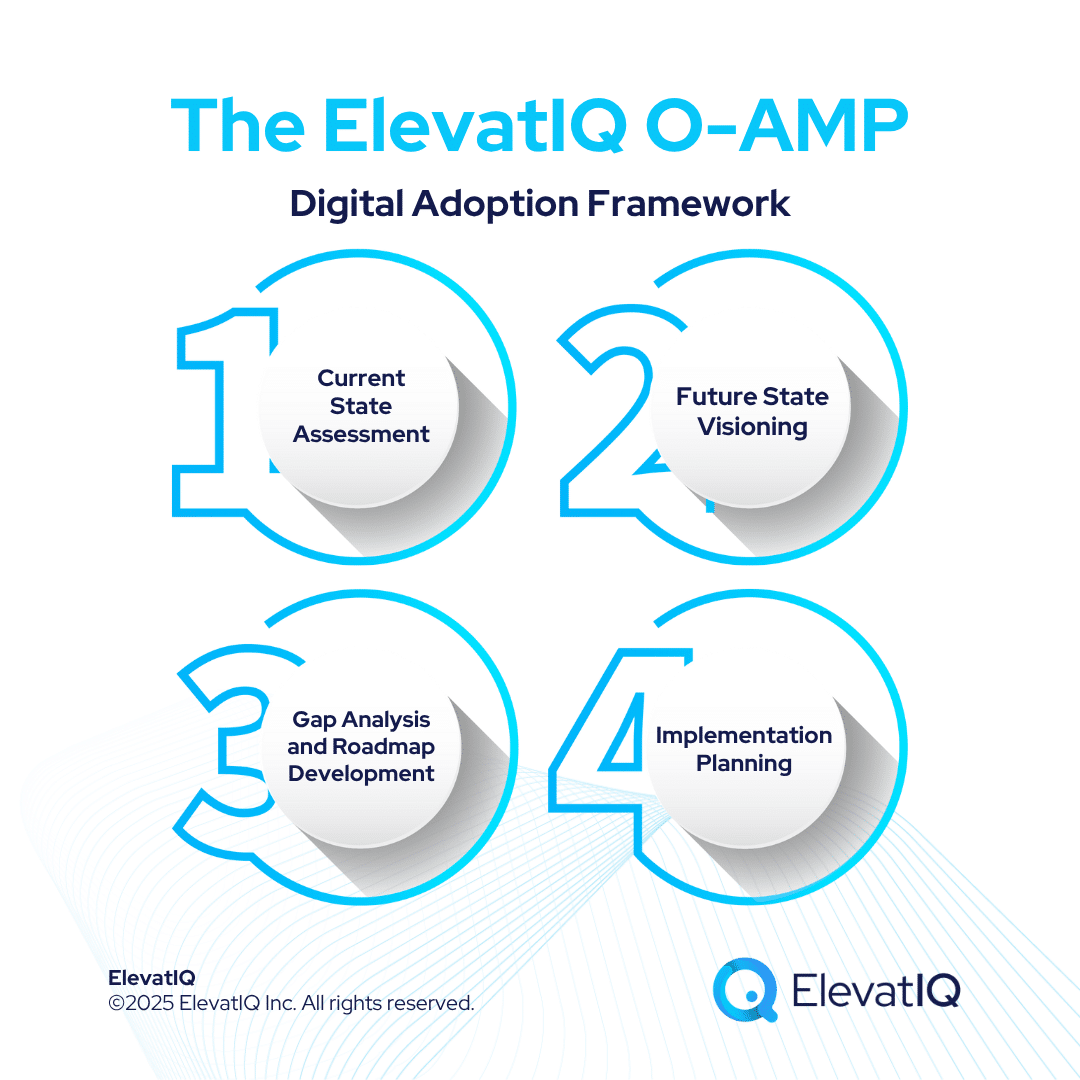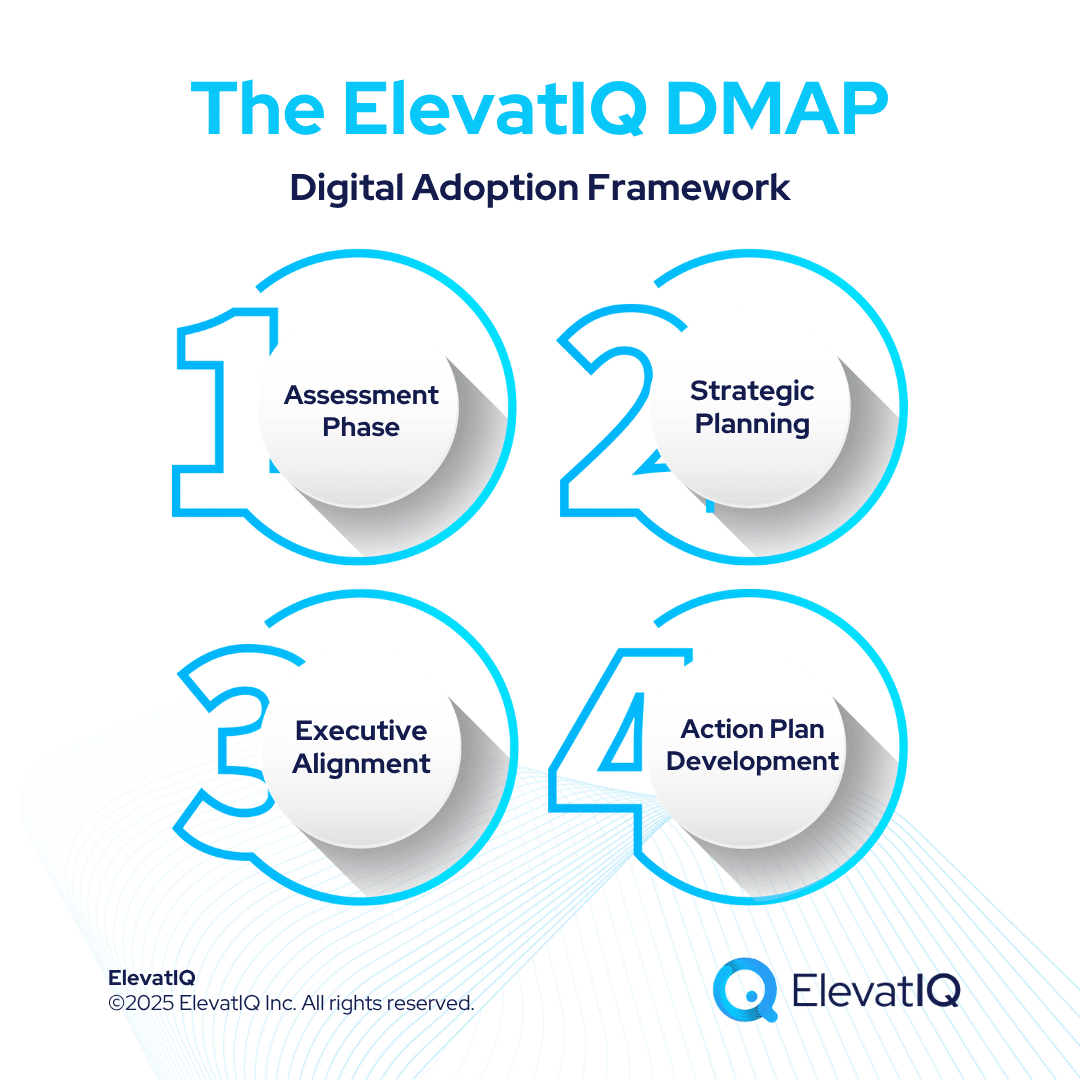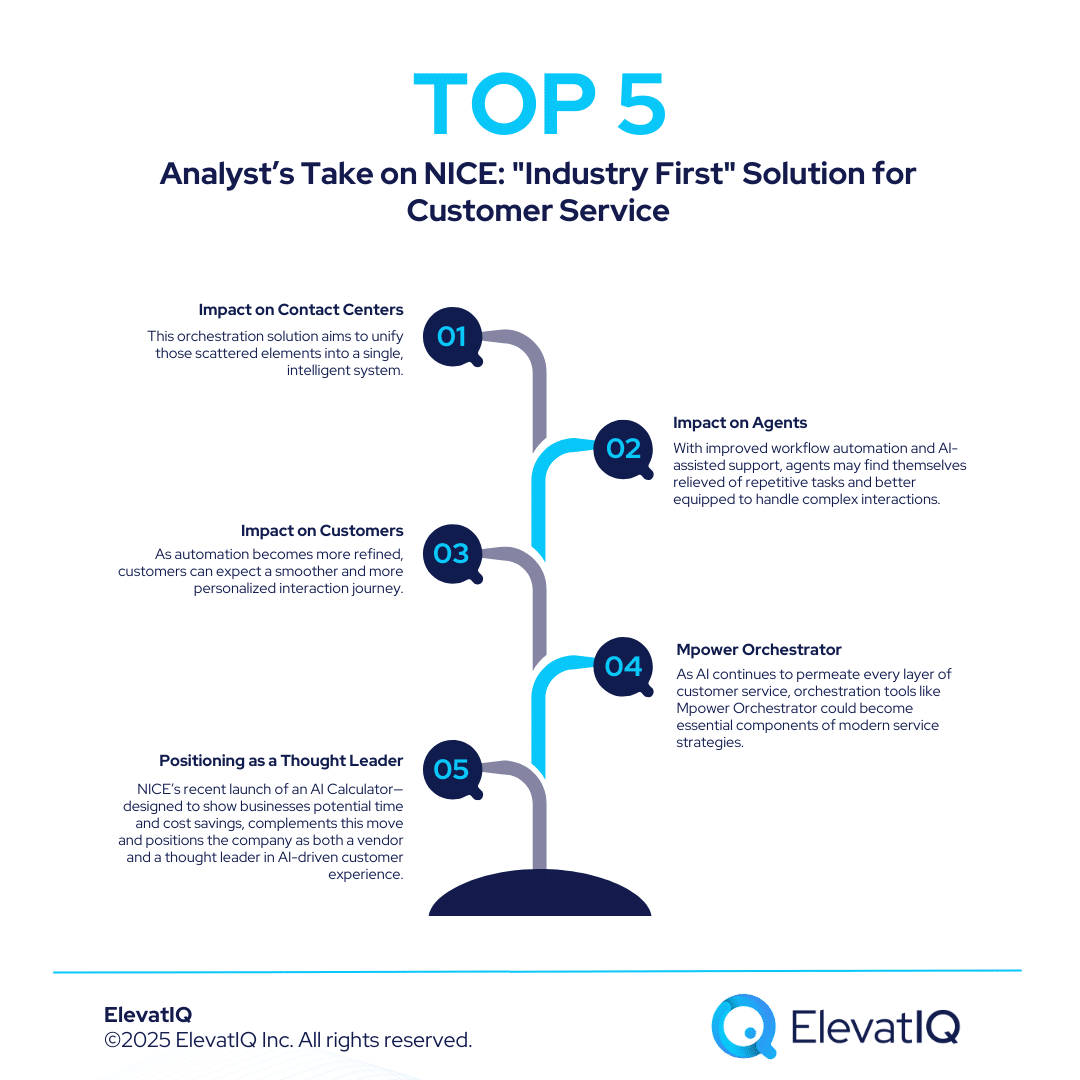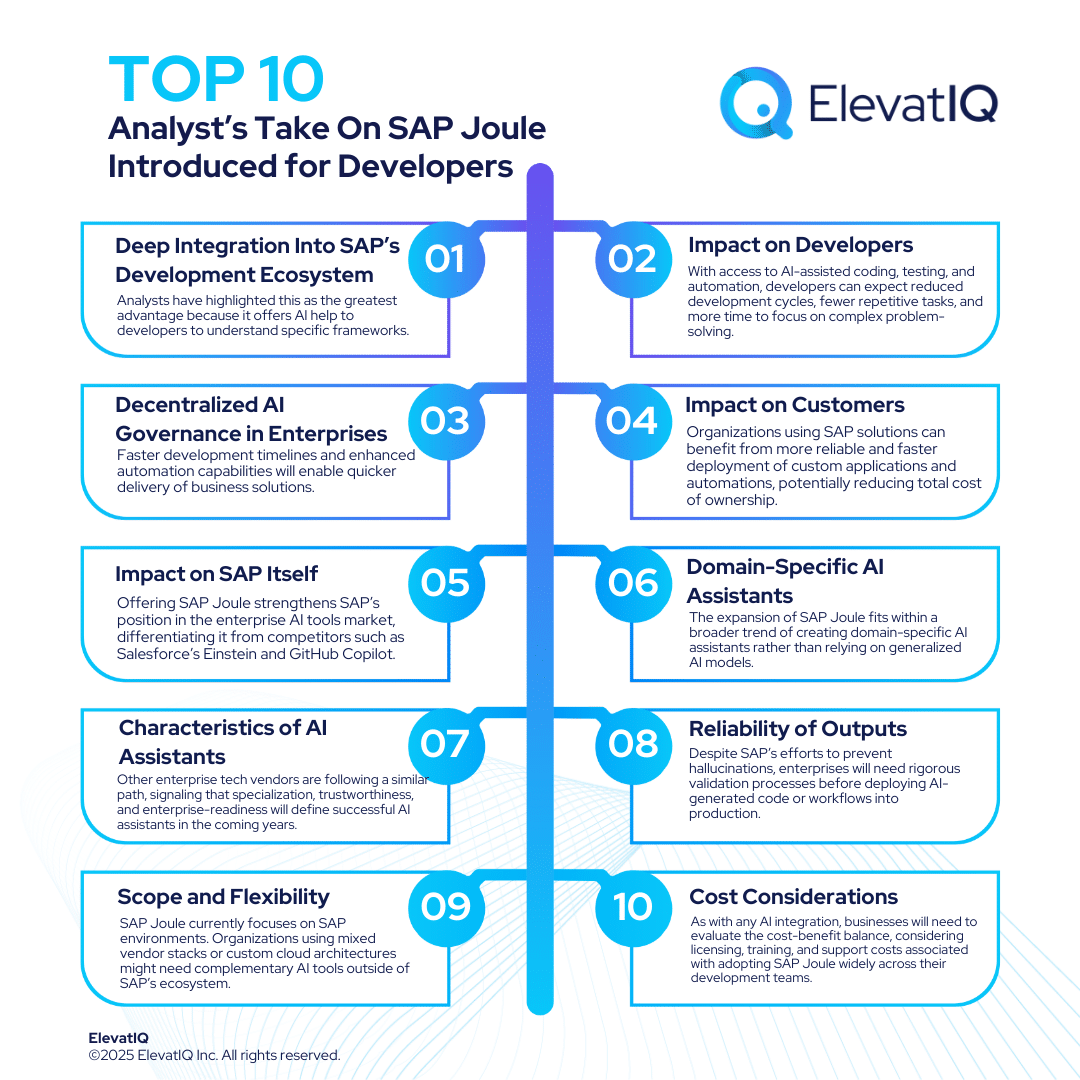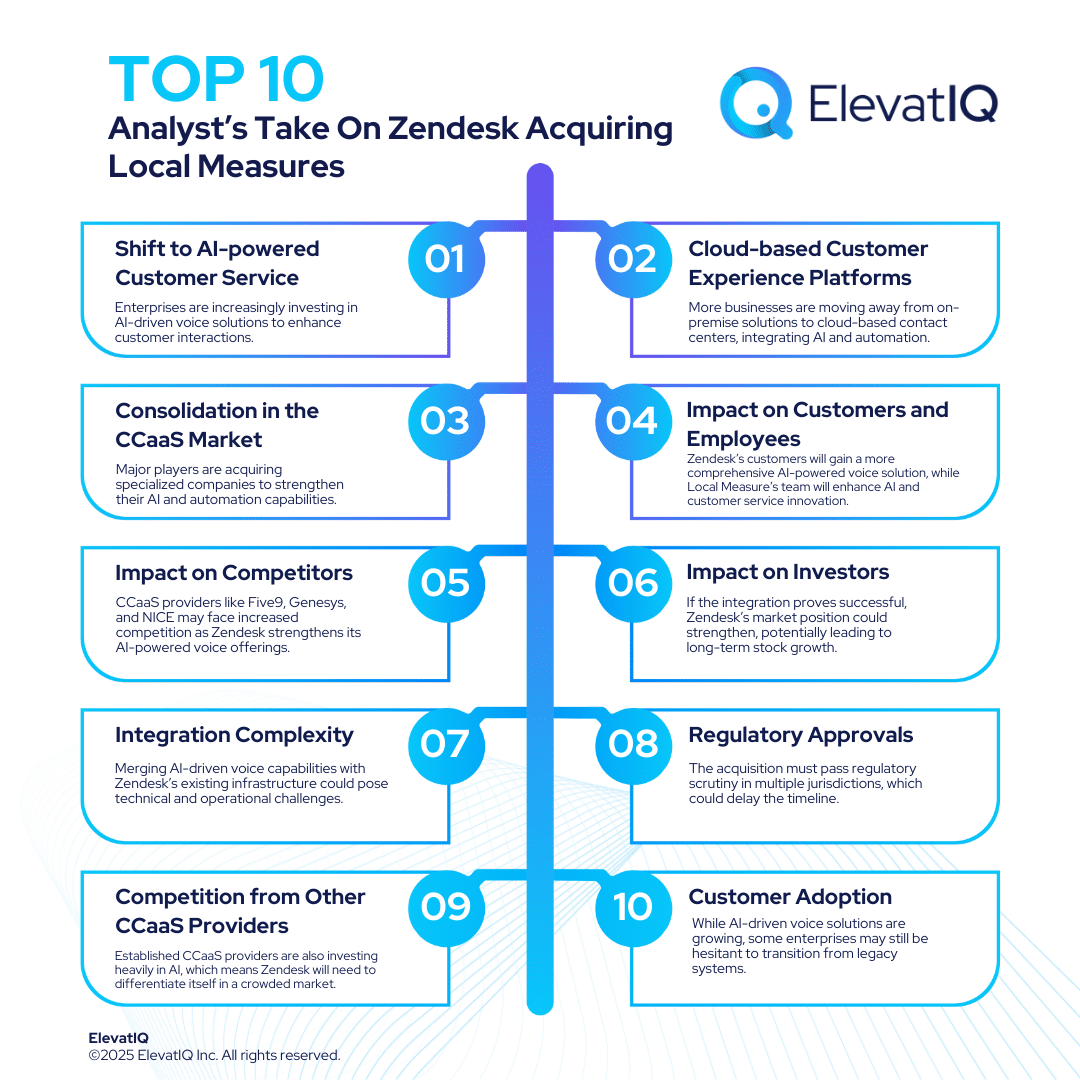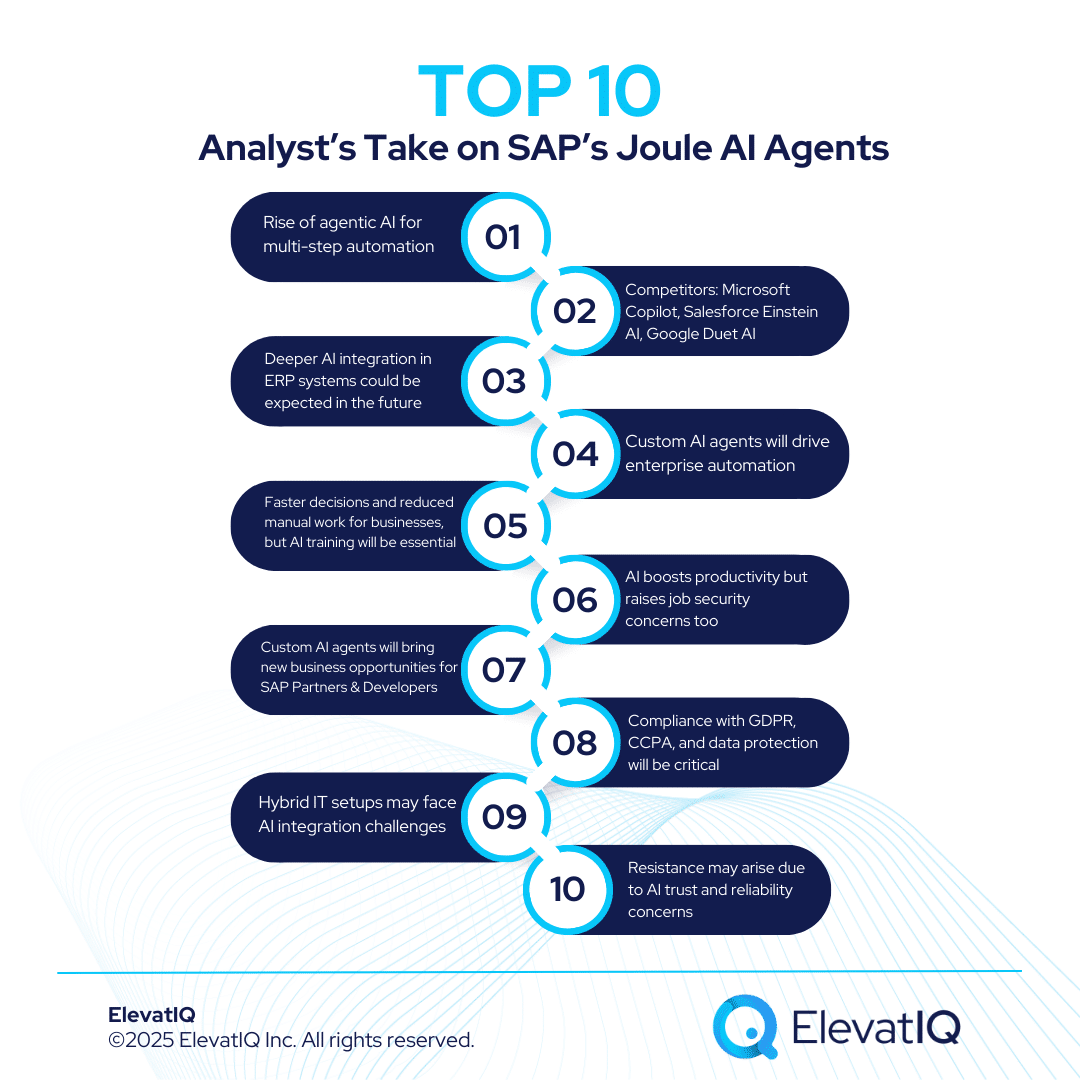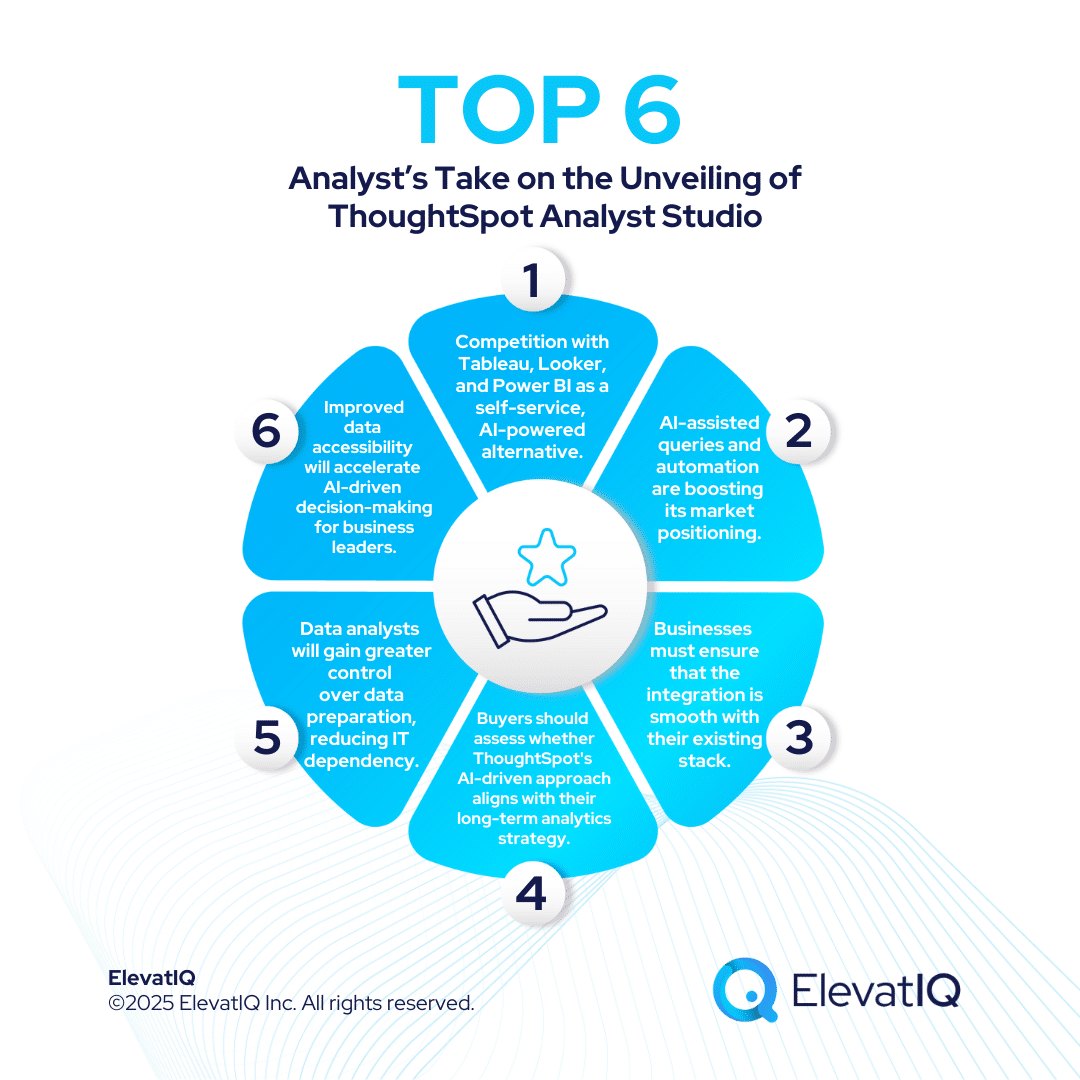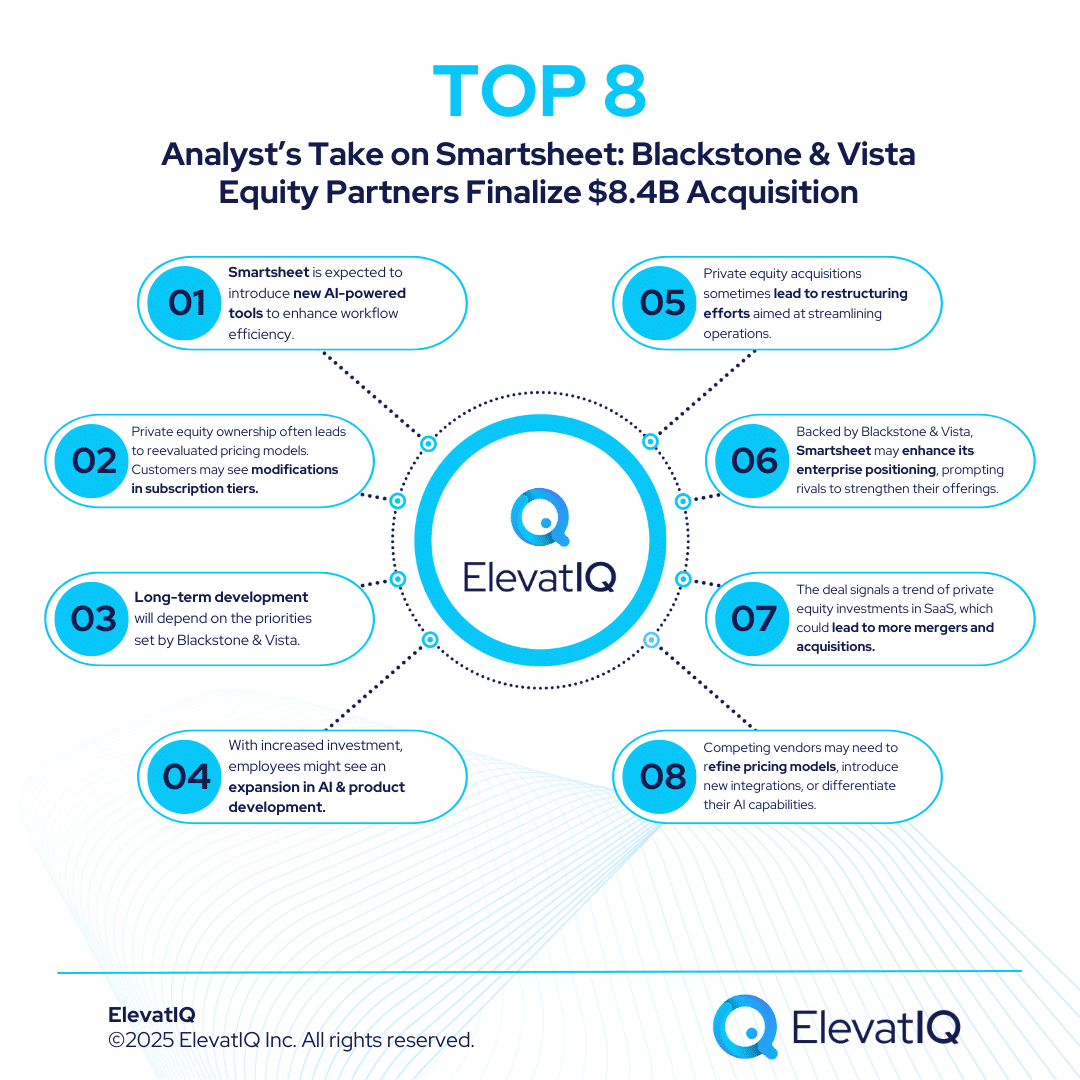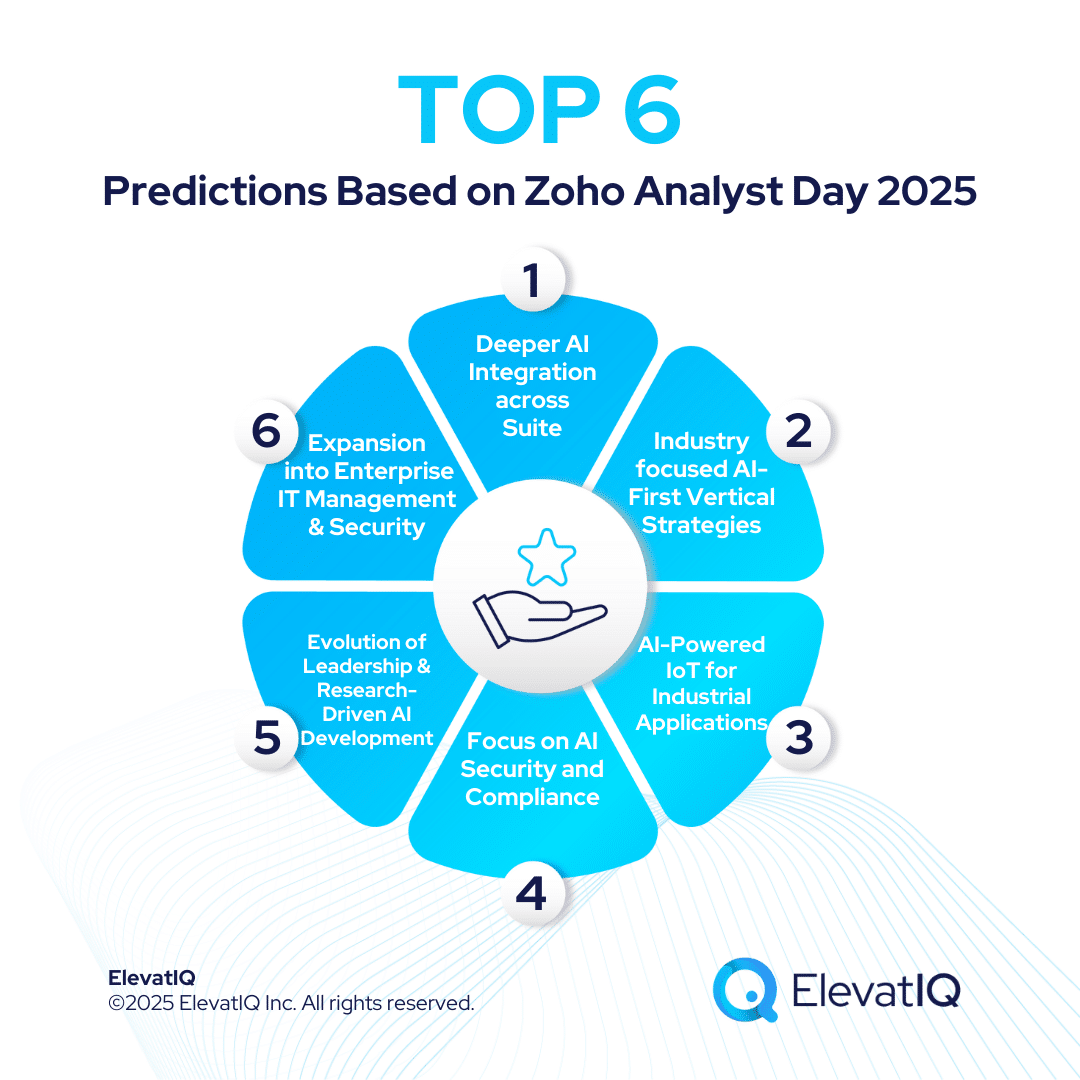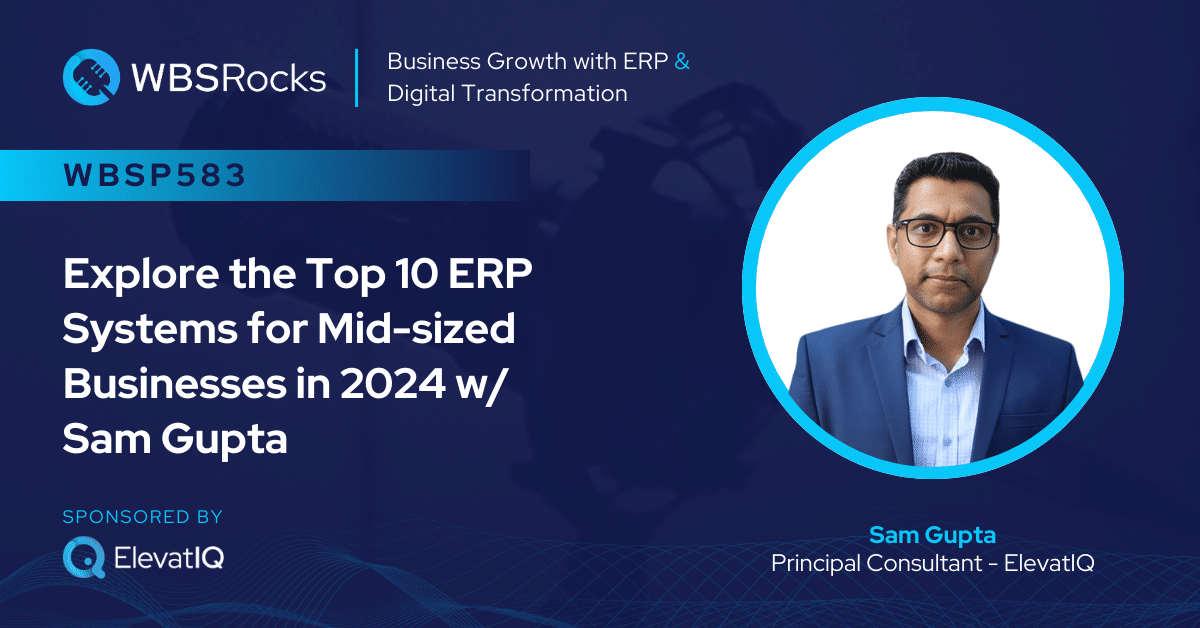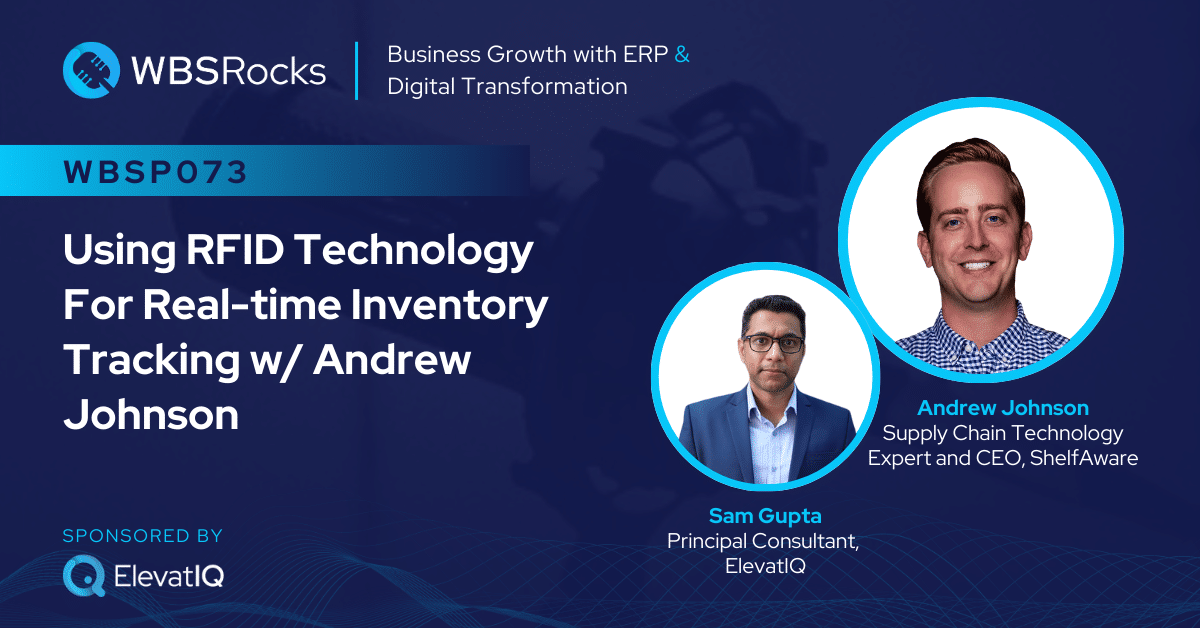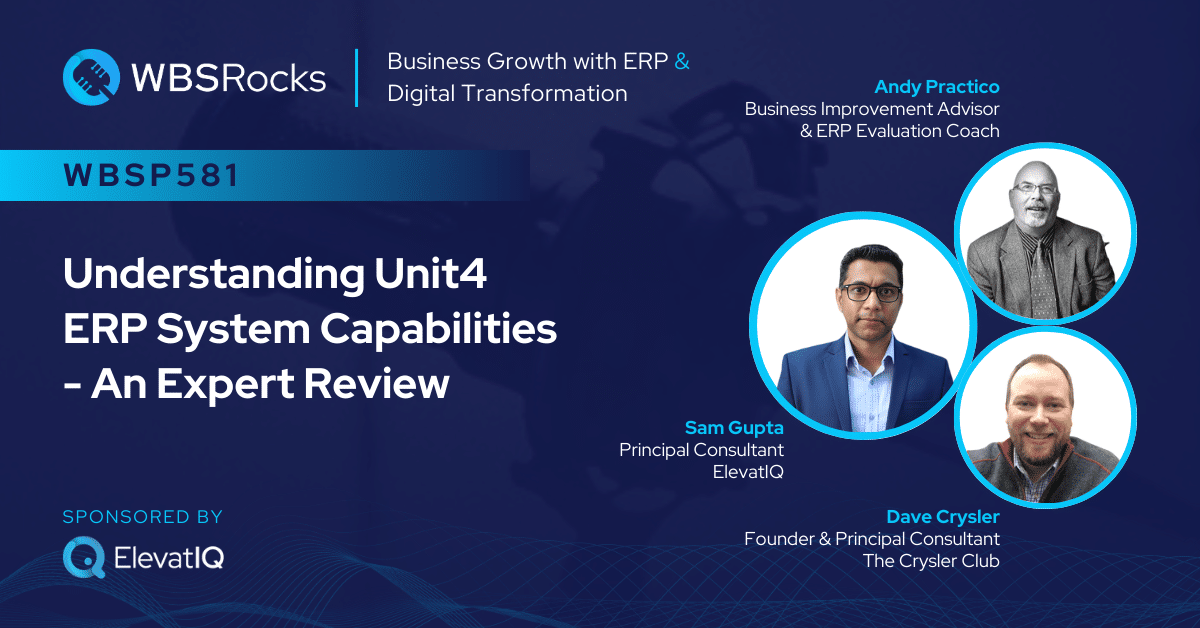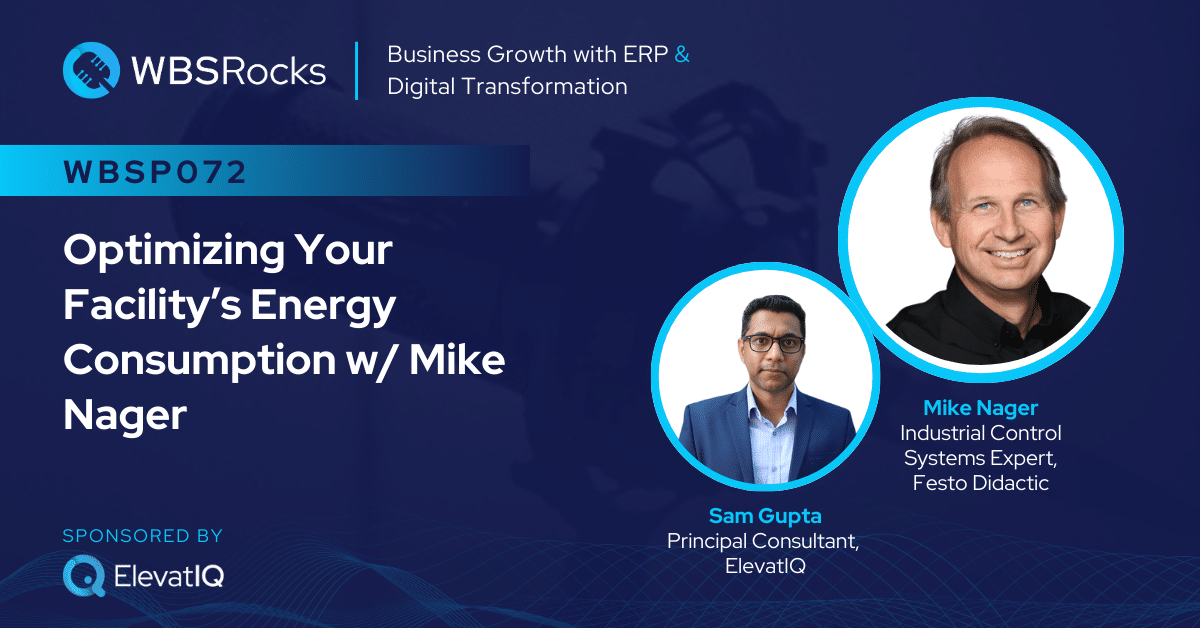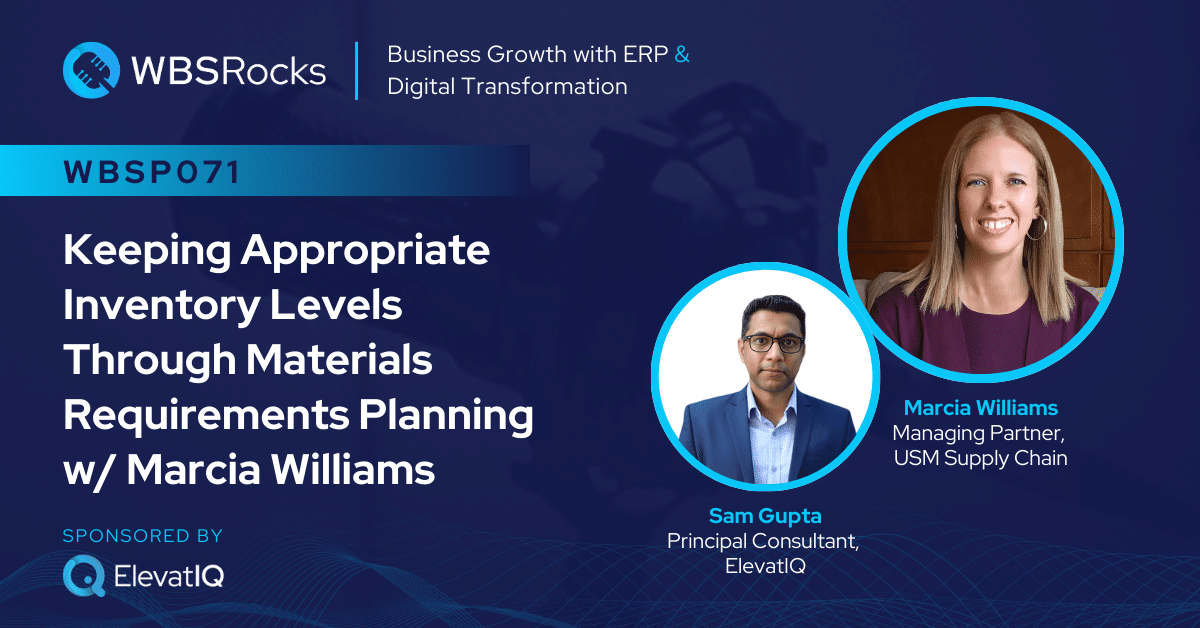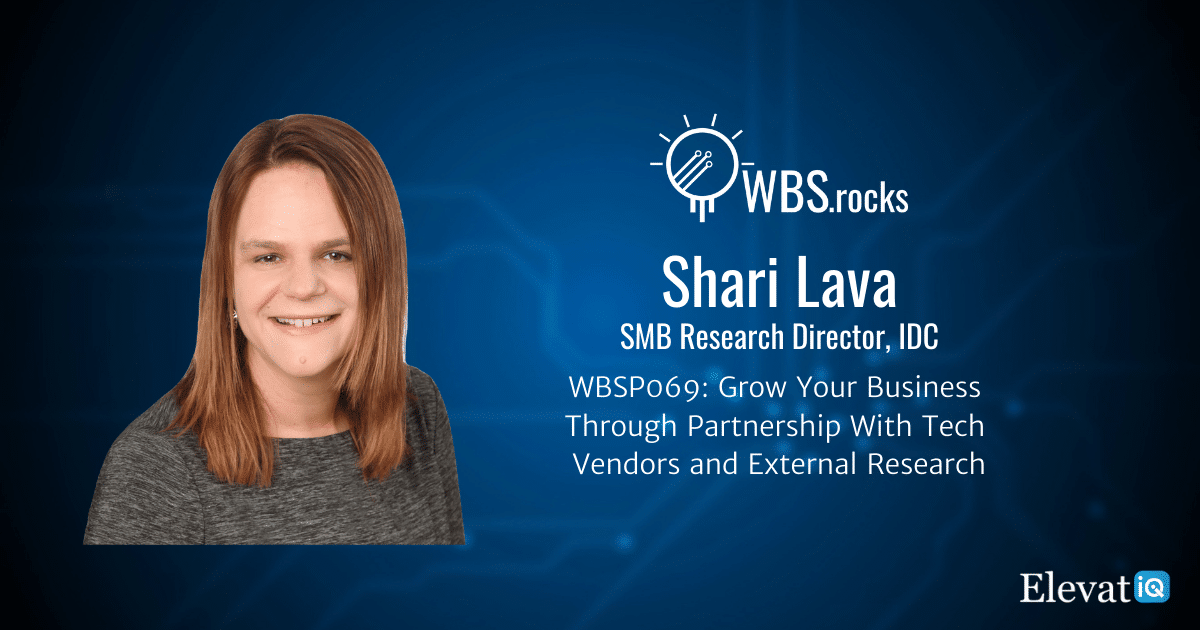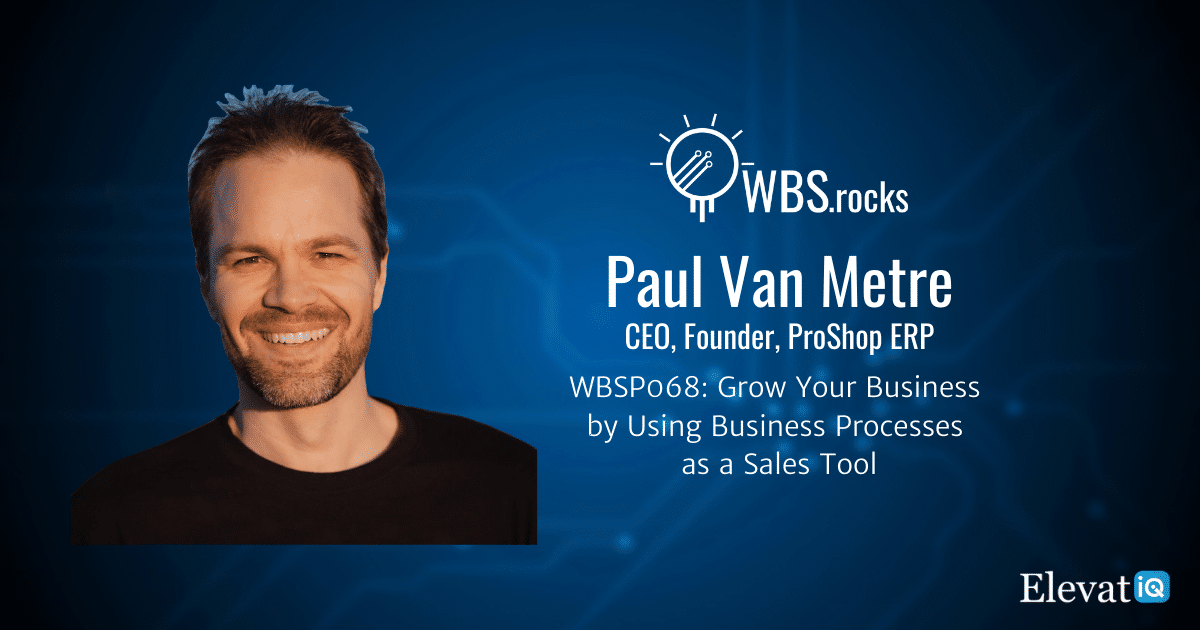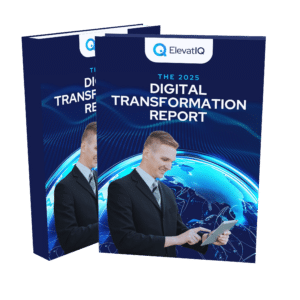Independent ERP Consultants: Saving Transformation Disasters
Through vendor-agnostic architecture, independent ERP selection, business process reengineering, software contract negotiation, and improved process clarity.
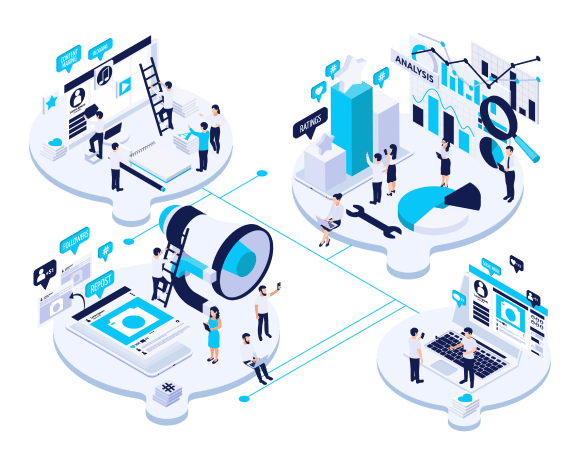
Why Independent ERP Consultants?
And why do they have higher success rate with ERP Implementation?
Unlike ERP resellers and OEMs, independent ERP consultants like ElevatIQ can remove the system and technology bias and streamline your legacy processes and data. We also help identify the low-hanging fruits in streamlining your current systems and processes before replacing any systems. Finally, we help ensure that the new system will play nicely with the other systems in your architecture.
Help with an Unbiased Perspective
Each solution tries to pull your data and process architecture in their direction, which has direct impact on your operational efficiency and business model. You need an architecture that will work with your unique business model and processes. Independent ERP consultants like ElevatIQ can help design this architecture without being biased toward one system such as ERP or E-commerce.
Negotiate Software Contracts
Cheaper deals on their face may turn out to be the most expensive because Software contracts have a lot of moving pieces. It requires deep subject matter expertise in several cross-functional areas. Independent ERP Consultants such as ElevatIQ have previous quotes from 200+ ERP vendors from the market. They can compare and identify the red flags before it's too late.
Cleanse Your Legacy Processes and Data
The legacy processes, systems, and data are the major cause of overengineering of new systems and architecture. The new systems won't help with financial or operational efficiency unless you streamline your legacy processes and data. It requires careful analysis of each process. It also requires performing a change and fit-gap analysis that helps teams visualize the as-is and to-be and why the change is necessary to gain financial efficiencies and remove operational bottlenecks.
Save Digital Transformation Implementation Disasters
Digital transformation looks easy on paper, but it's much harder to execute. Each minor ad-hoc need that needs to be customized could potentially cost millions of dollars. It could also be a cause of system failure. The digital transformation initiatives require careful analysis of each need, standardizing them to the out-of-the-box process flows, and carefully selecting each system with the highest return and least financial risks. ElevatIQ can help save these disasters.
Remove Tight Coupling with Vendors
Let's face it. Unfortunately, whatever goes in the ERP system remains the most secret IP of your business. Sometimes, this secret might not be well-documented and might only be supported by developers who originally wrote it. They might also not share the code with external developers to support it. We ensure there is no tight coupling to any specific software and ensure the financial sustainability of the organization.
Help Build Business Case
Replacing your ERP or any other systems in your architecture is not always the solution for all of your system or performance issues. You may have superior financial return and less disruption by better integrating your existing systems or simply optimizing data and processes inside. These decisions are very complex and have implications for every aspect of your business. Independent ElevatIQ consultants such as ElevatIQ can help mitigate such risks.
Want to learn more about how independent ERP consultants can help with your specific business challenge?
How is ElevatIQ different?
from other independent ERP consultants?
Unlike other independent ERP consultants, ElevatIQ provides a much deeper assessment of current systems by digging into the contracts, legal obligations, current issues with IP, vendor obligations, architectural issues by incorporating new systems, and the impact of change due to the new architecture. Most other ERP selection consulting firms walk away after recommendations and often blame ERP vendors for failure. ElevatIQ likes to be deeply involved during the implementation phase and remains one point of contact for architectural execution, code reviews, change management, end-user training, and any changes to the originally proposed architecture.
Unlike 80% of the independent ERP consultants who believe that they can save ERP implementation through a checklist or a database, we don’t believe so. The success of an ERP implementation requires careful analysis of transactions and data models aligned with the business model. ElevatIQ doesn’t walk away after the selection. We remain deeply involved throughout the process and often act as the backup CIO or CIO advisor for most of our clients.
Building a vendor-agnostic architecture requires you to draw the data flows between different entities, departments, processes, and systems. It also requires you to identify the source of truth for each shared dataset. Finally, you need to design master data governance process flows and how you will maintain the integrity of architecture through the process and data controls. There are very few firms like ElevatIQ that have deep expertise in building enterprise architecture that scales.
ERP has never been the solution to all problems. And it will never be. A company needs to use 5-10 other applications in conjunction with an ERP. Unlike most independent ERP consultants, our consultants have expertise in multiple systems, including HCM, CRM, E-commerce, WMS, and TMS. ElevatIQ has expertise in selecting the right systems for the right job and creating a vendor-agnostic multi-system architecture.
While there are similarities between businesses and industries, it’s the differences that make or break digital transformation initiatives. These differences could include product model, estimation strategies, or customer hierarchies. Unlike most independent ERP consultants who tend to be generalists, ElevatIQ has deep micro-vertical expertise in specific industries and deeply understands the nuances of these industries.
Unless you have hands-on experience implementing most ERP systems in the market, they all appear alike. And these nuances are what make ERP implementation so challenging. ElevatIQ’s consultants have hands-on experience implementing most leading ERP systems in the market. And this expertise helps ElevatIQ to have a higher success rate with ERP implementation projects through the deeper alignment of business models with solutions.
When it comes to business model transformation initiatives such as buy-online-pickup-in-store, omnichannel experience, and cross-border financial and operational synergies, just an ERP system is never enough. You need a solution architecture along with the process and organizational alignment that play a crucial role in the success of these initiatives. With its deep expertise in enterprise-grade systems and architectures, ElevatIQ is uniquely positioned to help with your next business model transformation initiatives.
Want to learn more about how ElevatIQ is better qualified than other independent ERP consultants?
Check Our Popular ERP Blogs
The problems customers face
that independent ERP consultants can solve
Most of our customers that typically seek assistance from independent ERP consultants struggle with challenges such as being unable to build consensus among teams. The challenges could also include not having enough process visibility to determine the needs of the entire organization. They need help reengineering the processes due to their business or industry being unique or navigating the complex ERP space.
Organizational Misalignment
This is a common issue for most organizations. Each team has its perception of its needs, and cross-functional maturity doesn’t exist to define the process state. ElevatIQ has deep subject matter expertise in most functional areas, including accounting, operations, and marketing, and can speak their language. This expertise helps ElevatIQ build consensus and organizational alignment in a technology-agnostic manner.
Operational and Financial Problems
When you might have significant operational and financial challenges such as late deliveries or inventory issues, you might feel that the problems could be because of the outdated systems. But updating systems might not have any net effect on your performance. ElevatIQ can help you with the core challenges that your businesses might have in identifying the legacy processes or data that may be the cause of some of these issues.nd identify the red flags before it's too late.
Cross-functional Tribal Knowledge
As companies plan to build the process and system architecture for the next phase of their growth, they often don’t have enough visibility into their current processes. ElevatIQ helps these companies visualize their current processes, realign them to the new desired state, streamline legacy processes, and map with new systems and architecture designed to support the transaction volume and process complexity of the new inflection point.
Lack of Confidence with DIY ERP Selection
While your executives may have implemented several systems in the past, they don’t live and breathe the enterprise software space on a daily basis. With so much experience under our belt, even Independent ERP consultants like ElevatIQ will get surprise bills from ERP vendors as these vendors are changing their products and licensing on a daily basis. ElevatIQ can help reduce the risk of these financial surprises greatly.
Failed ERP Project
It’s very common to see the project may be over budget than originally planned. Or you might feel that the implementation might never produce the business results aligned to your expectations. Rather than sinking money without any clear roadmap for success, get advice from ElevatIQ and let them help you find the root cause and appropriate strategy based on your commitments and contractual obligations.
Lack of Internal Legal Expertise for ERP Contracts
If you feel that the vendor did not perform the due diligence before selling you expensive software that wasn’t designed to work for your business, you might be able to recoup some of this money by pursuing legal strategies. ElevatIQ can act as the expert witness and perform an assessment if the legal path may be worth your time and efforts. Don’t keep wasting your money on a failed implementation, and let ElevatIQ be your expert witness.
Are you facing these problems as well?
Our Independent
ERP Consulting Services
ElevatIQ services include transformation readiness assessment and vendor-agnostic digital process architecture development; business process re-engineering, documentation, and design; digital roadmap and business case development; enterprise technology selection; requirement, project, and change management; RFP development and contract negotiation; ERP implementation, optimization, and training; and ERP project recovery and expert witness.
Digital Strategy Assessment and Roadmap Development
Our assessment starts with a deeper dive into the current state of your processes, data, systems, pain points, and goals. We use secondary and primary methods to provide an initial roadmap of recommended changes to meet your business goals.
Fractional CIO, Expert Witness, and M&A Advisory
If you don't have an internal CIO, we can act as the interim CIO and advise on most systems and processes. In addition, if you need our help as the expert witness or in an M&A transaction to assess the potential of business technology, we can help.
ERP Implementation and System Integration
We have internal capabilities to support the implementation of most major ERP systems. We also help integrate Salesforce, HubSpot, Shopify, BigCommerce, Magento, Amazon, POS, or ERP systems (SAP, NetSuite, Sage).
ERP Selection, Contract Negotiation, and Change Management
These services help identify the suitable systems for your enterprise architecture, uncover technical and financial risks deeply embedded in your contracts, and manage change for your organization.
Business Process Reengineering and Redesign
These services are applicable in the pre-selection phase to avoid ERP implementation and adoption risks. The goal of these services is to identify your legacy processes and datasets that need to be re-engineered before identifying technologies for your business.
ERP Project Recovery and Optimization
70% of the ERP projects don't deliver business results. And some cause significant disruptions to the business. If you need help recovering the project by analyzing the current implementation and taking interim steps to prevent damages or pivoting strategy, we can help.
Our Methodology
for ERP Selection and Implementation
Our methodology starts with the assessment of your current processes and architecture. This step is typically followed by a digital roadmap that will contain necessary changes that need to be made to the processes, data, and systems to be ready for the desired to-be state. Once the executive team and board agree with the changes and the plan, the action plan is drafted with a phased approach with the lowest hanging fruits and highest financial rewards. The action plan could include ERP selection and implementation or the optimization of current systems.
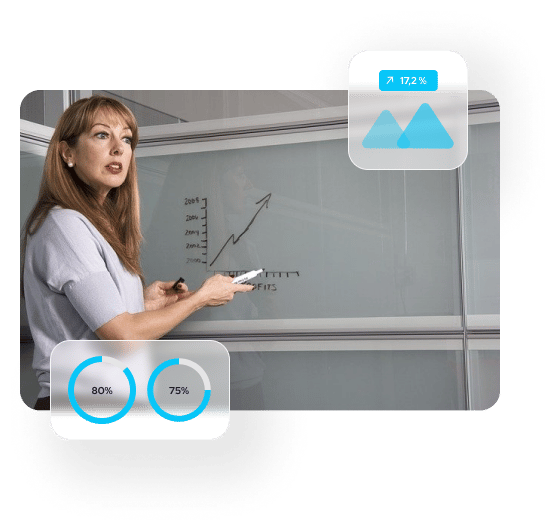
1 Assessment
Through the primary and secondary research, this assessment digs into each of your datasets, transactions, and processes to identify the core reasons for current challenges, a strategy to solve current issues, and a phased approach to execute recommendations.
3 Critical Success Factors and Solution Identification
This process identifies the critical success factors that are the major cost drivers for the implementation and have the highest financial risks. These factors are also the drivers for the demo script during the vendor reviews. This step provides clarity to the executive team. So that you don’t make a wrong decision by focusing on unnecessary details with ERP vendors and miss the most critical factors that will make or break your ERP implementation.
5 Solution Selection and Contract Negotiation
This process coaches key stakeholders on the red flags with each solution, provides a matrix to help with decision making, and identifies the areas for cost savings through negotiation with each solution provider. This phase also vets the implementation plan from each vendor involved and creates a roadmap for implementation with clear roles and responsibilities for each vendor.
2 Process Reengineering
This phase takes a deeper dive into the phase I identified in the previous step with the highest financial reward and least disruption to the business. It continues with the deeper discovery of current processes through workshops with key users and identifies processes and datasets that need to be re-engineered in the to-be state. This phase maps transactions and datasets that need to be exchanged in the to-be state across systems new or existing in a vendor-agnostic architecture.
4 Fit-Gap and ROI Analysis of each Solution
The purpose of this step is to perform the fit-gap analysis of each solution that is a front-runner. This exercise helps identify the configuration, implementation, and custom development effort required with each solution. This step also helps in understanding the total cost of the ownership and the ROI, along with any financial risks that need to be discussed and agreed upon before finalizing it.
6 ERP Implementation, Integration, Code Reviews, and Change Management
This step is repeated until the project achieves business value, user adoption, enterprise architecture compliance, and the functional completeness goals of the system. This step also monitors the budget for the overall project and communicates the pivot strategy at each step if we uncover any surprises during the pre-selection and selection phase. And throughout the process, the key users are involved in making critical decisions. So they own them and are committed to adoption.


